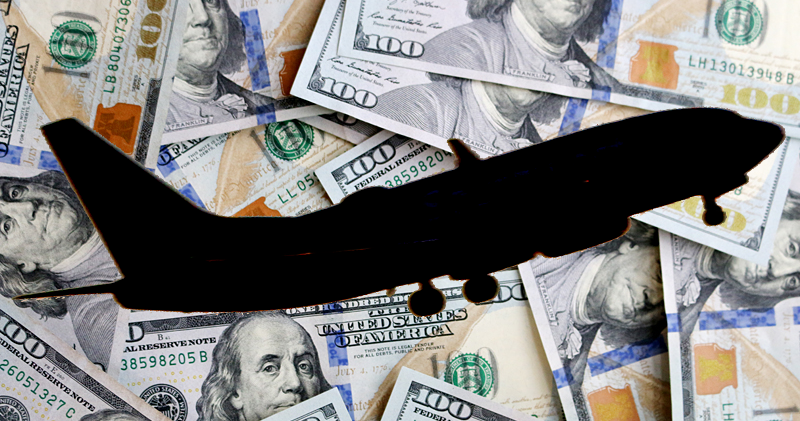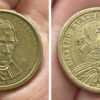An executive order which was issued by Joseph Biden — who is the current president of the United States — includes directions for the Department of Transportation to consider facilitating the process of consumers in obtaining refunds from airlines as part of an overall effort to promote competition in the economy in the United States while simultaneously reducing the trend of corporate consolidation.
Refunds and Clear Disclosure of Fees by Airlines to Promote Competition: Executive Order
The executive order also intends to require a clear disclosure of baggage fees, change fees, and cancellation fees in an effort to have comparison shopping for airfares among competing airlines become easier for consumers.
“The top four commercial airlines control nearly two-thirds of the domestic market”, according to the fact sheet of the aforementioned executive order, which was released on Friday, July 9, 2021. “Reduced competition contributes to increasing fees like baggage and cancellation fees. These fees are often raised in lockstep, demonstrating a lack of meaningful competitive pressure, and are often hidden from consumers at the point of purchase. The top ten airlines collected $35.2 billion in ancillary fees in 2018, up from just $1.2 billion in 2007. Inadequate competition also reduces incentives to provide good service. For example, the Department of Transportation (DOT) estimates that airlines were late delivering at least 2.3 million checked bags in 2019.”
Within the executive order — which includes no fewer than 72 initiatives by greater than a dozen federal agencies to promptly address and tackle some of the most pressing problems of competition across the economy of the United States — the president of the United States directs the Department of Transportation to consider issuing rules which clearly require:
- The refund of fees when baggage is delayed or when service is not actually provided — like when the WiFi or in-flight entertainment system aboard an airplane is broken or inoperable.
- That require baggage fees, change fees, and cancellation fees to be clearly disclosed to the customer.
2012: The Total Cost Airfare Rule
Airlines which conduct business in the United States have been required to include all mandatory taxes and fees in advertised airfares — as ordered by the Department of Transportation of the United States — effective as of Thursday, January 26, 2012…
…but one side effect of what became known as the Total Cost Airfare Rule once it went into effect was that if you searched for an airfare and found that it seemed to have increased considerably from before the Total Cost Airfare Rule went into effect, chances were that the airfare merely included taxes and fees. The total airfare — barring a fare increase, that is — remained the same otherwise.
Airlines infamous for advertising ultra-low airfares such as Allegiant Air and Spirit Airlines — the latter of which advertised so-called “$9.00 airfares” — had reportedly filed legal appeals in 2012 to have the United States Court of Appeals in the District of Columbia circuit overturn the rule, claiming that the rule “violates commercial free speech rights.”
One would argue that the practices of advertising ultra-low airfares is nothing more than deceptive advertising. In fact, one could argue that by omitting items as taxes imposed by foreign countries such as Great Britain — where taxes could amount to hundreds of dollars — and exorbitant fuel surcharges on international flights whose valuation seems to have no rhyme or reason at times can also be considered deceptive advertising. How can one explain paying $800.00 on what may have been originally advertised as a $150.00 airfare?
Keep in mind, however, that optional ancillary fees such as baggage fees and on-board food purchases were not included as part of this rule and therefore airlines are not required to include them in the overall airfare cost. Although there is a required disclosure of baggage fees upon booking and on confirmations of electronic tickets, the disclosure should be extended to include all ancillary fees. Customers have a right to know what extra costs are associated with any options they may wish to purchase, and those fees should be easy — not difficult — to find.
Other protections which became available to the consumer include:
- A ban on increases in airfare after a ticket has already been purchased
- Required and prompt notification of delays of greater than 30 minutes, as well as cancellations and diversions of flights
- A 24-hour window for passengers to hold or cancel a reservation without payment or penalty for reservations made a week or more before the departure date, although some airlines already have voluntarily implemented this policy for years
- The same baggage allowance and fees are to apply throughout the itinerary of a passenger, instead of different fees on different segments in different locations, which only confuses the passenger
The Transparent Airfares Act of 2014
If the name Bill Shuster — who introduced the aforementioned current bill and is one of its sponsors — sounds familiar, it is likely because the Republican congressman who represented District 9 in Pennsylvania sponsored the Transparent Airfares Act of 2014, which “declares that it shall not be an unfair or deceptive practice for an air carrier or other covered entity to state the base airfare in an advertisement or solicitation for passenger air transportation if it clearly and separately discloses: (1) the government-imposed taxes and fees for the air transportation, and (2) its total cost.”
The Transparent Airfares Act of 2014 defined “base airfare” to mean the cost of passenger air transportation which excluded government-imposed taxes and fees; and defines “covered entity” as an air carrier — including an indirect air carrier, foreign carrier, ticket agent, or other person offering to sell tickets for passenger air transportation or a tour or tour component that must be purchased with air transportation.
The Transparent Airfares Act of 2014 was introduced and referred to the House Public Works and Transportation Subcommittee on Aviation — a subcommittee of the House Transportation and Infrastructure Committee — on Thursday, March 6, 2014; and it was reported by Committee on Wednesday, April 9, 2014. The remaining three steps was that it needed to be passed by both the House of Representatives and the Senate; and then signed by the president of the United States.
On Monday, July 28, 2014, the House of Representatives of the United States “overwhelmingly approved bipartisan legislation to return transparency to U.S. airfare advertising and providing greater clarity for consumers by allowing advertisements for passenger air travel to state the base airfare” and separately disclose any taxes and fees imposed by the government and the total cost of travel — bringing it one step closer to being passed; but thankfully, it was unsuccessful.
It was no surprise that many airlines at that time support the Transparent Airfares Act of 2014, as it would have essentially reversed the Total Cost Airfare Rule. The list of supporters for the Transparent Airfares Act of 2014 reportedly included:
- Air Line Pilots Association International
- Airlines for America
- Alaska Airlines
- Allied Pilots Association
- American Airlines
- Americans for Tax Reform
- Association of Flight Attendants – CWA
- Coalition of Airline Pilots Association
- Cost of Government Center
- Delta Air Lines
- International Association of Machinists & Aerospace Workers
- International Brotherhood of Teamsters
- JetBlue
- Southwest Airlines
- Southwest Airlines Pilots’ Association
- Spirit Airlines
- United Airlines
The 21st Century Aviation Innovation, Reform, and Reauthorization Act of 2017
All was relatively quiet since lawmakers attempted to convert what was then known as the Transparent Airfares Act of 2014 into law to reverse at least part of what was passed in 2012; and if the airlines had their way, you will not initially know what is the full price of airfare until you attempt to book a ticket or spend your valuable time doing research — potentially bringing consumers back to those “bait and switch” days when searching for airfares to book. As an example, have you ever searched for an airfare and found what appears to be a great deal, only to find that the airfare committed what could be considered a ‘bait and switch’ tactic and did not include taxes and fees until just before you were ready to pay for it?
Although it could have potentially resulted in ensuring that airfares once again became more confusing for consumers, the 21st Century Aviation Innovation, Reform, and Reauthorization Act — also known as the 21st Century AIRR Act — was supposed to, according to an official press release from the Department of Transportation of the United States:
- Cut Washington red tape so that our manufacturers can get products to market on time, stay competitive, and continue to employ millions of Americans.
- Encourage American innovation in aviation technologies to promote a stronger American workforce.
- Ensure that our airport infrastructure connects businesses and people to the world.
- Provide a better flying experience from gate to gate.
- Ensure access to the aviation system for everyone who depends on it – especially the Nation’s millions of general aviation users, and small and rural America.
- Provide Americans with a safe, efficient, modern system that uses 21st century technology to ensure more on-time departures, more direct routes, and less time wasted on the tarmac.
Summary
One might contend that the Total Cost Airfare Rule of 2012 unfairly singled out only airlines and should be extended to other forms of business and commerce pertaining to the sale of goods and services. I wholeheartedly agree, but I also believe that airfares were a good place to start.
It would be nice, for example, to go to a supermarket and have the sales tax already included in the price when you shop for a product — but the breakdown of taxes and other fees which are included in the price should be readily available for the benefit of the consumer and not hidden. How about having the tax and gratuity already included in the prices of menu items in a restaurant so that you will know exactly how much you will spend? Could there be room for corruption with an all-inclusive pricing model?
Perhaps, but at least it should allow for comparison shopping by consumers to be easier overall.
I have always been against what I perceive as deceptive advertising. I want to know the total cost of what I am paying when I book an airfare — or a hotel room or rental car, for that matter; and I have always believed that the full price should be what is advertised…
…and that should include all taxes, fees and surcharges. I do not want to see an airfare advertised for nine dollars and wind up paying $300.00 after all taxes, fees and surcharges are finally included.
I also never liked when airfares were advertised as one way but the purchase of a round trip airfare was required. Although advertising such a fare sale is not necessarily deceptive or a violation of the law in any way — as the airfare rules are very clear — but if the airfares listed are based on a required round-trip ticket, then shouldn’t the total airfare for the round-trip be displayed?
Finally, I would have very much liked to have seen the current executive order issued by Joe Biden to have addressed the nefarious practice of lodging companies charging consumers mandatory resort fees, mandatory destination fees, or mandatory facilities fees. If the fees are indeed mandatory, then they should be included in the overall room rate — period.
Photographs and composite image ©2016 by Brian Cohen.

